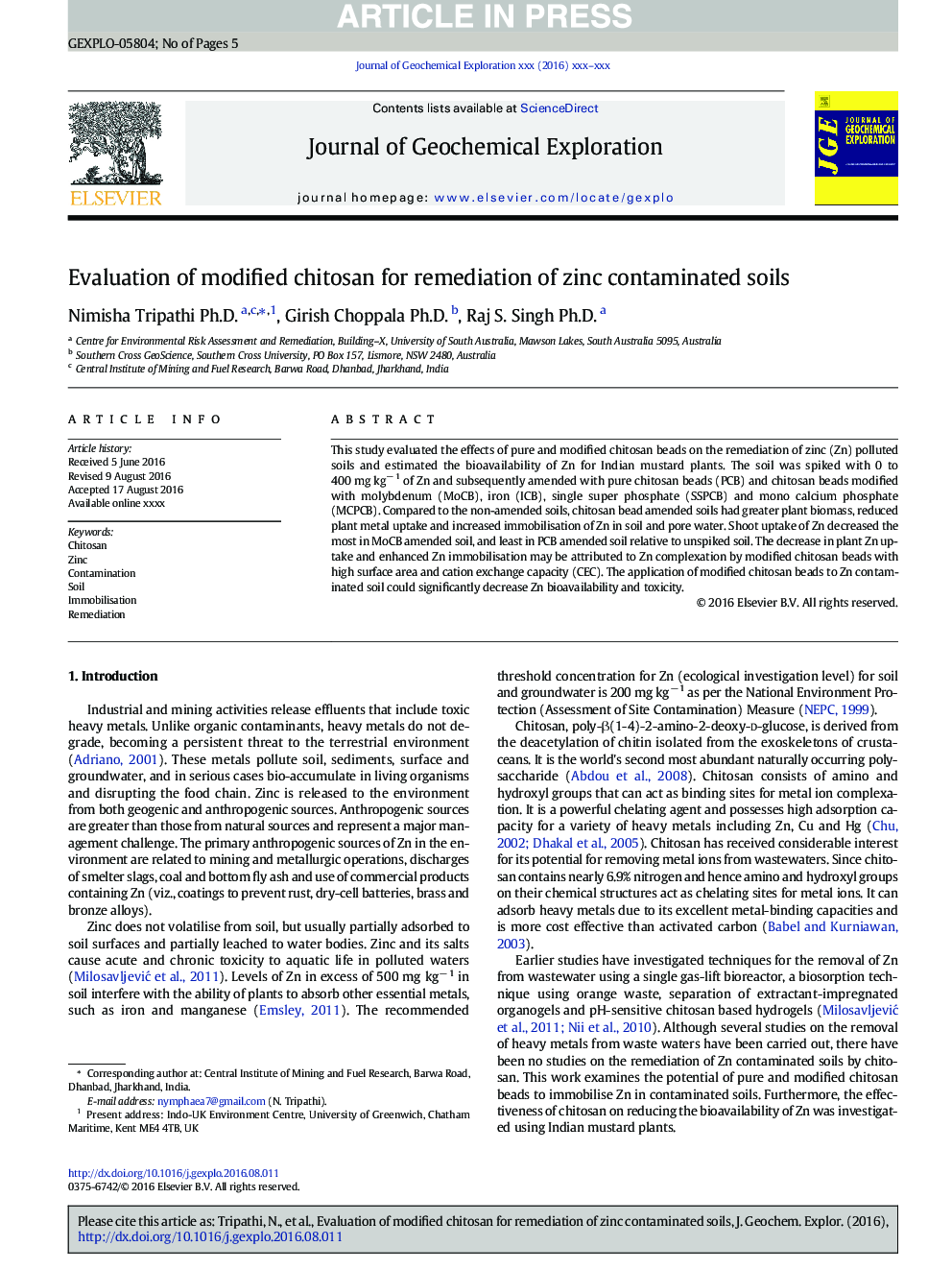| Article ID | Journal | Published Year | Pages | File Type |
|---|---|---|---|---|
| 8866228 | Journal of Geochemical Exploration | 2017 | 5 Pages |
Abstract
This study evaluated the effects of pure and modified chitosan beads on the remediation of zinc (Zn) polluted soils and estimated the bioavailability of Zn for Indian mustard plants. The soil was spiked with 0 to 400 mg kgâ 1 of Zn and subsequently amended with pure chitosan beads (PCB) and chitosan beads modified with molybdenum (MoCB), iron (ICB), single super phosphate (SSPCB) and mono calcium phosphate (MCPCB). Compared to the non-amended soils, chitosan bead amended soils had greater plant biomass, reduced plant metal uptake and increased immobilisation of Zn in soil and pore water. Shoot uptake of Zn decreased the most in MoCB amended soil, and least in PCB amended soil relative to unspiked soil. The decrease in plant Zn uptake and enhanced Zn immobilisation may be attributed to Zn complexation by modified chitosan beads with high surface area and cation exchange capacity (CEC). The application of modified chitosan beads to Zn contaminated soil could significantly decrease Zn bioavailability and toxicity.
Related Topics
Physical Sciences and Engineering
Earth and Planetary Sciences
Economic Geology
Authors
Nimisha Ph.D., Girish Ph.D., Raj S. Ph.D.,
